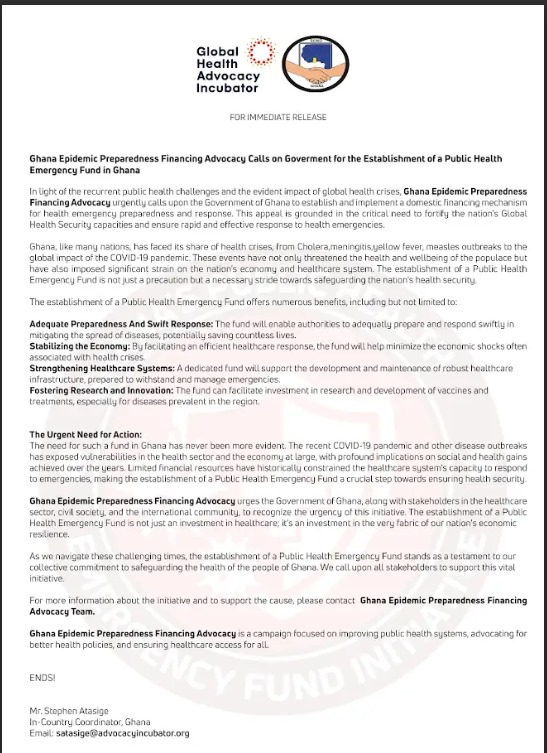
Dr. Akinwande Puddicombe is a Public Health Expert
Imagine a Ghana where tobacco-related diseases are a thing of the past, where fewer lives are lost to preventable illnesses, and where families thrive in a healthier, smoke-free society. This dream is achievable, as Sweden has demonstrated by becoming the first European Union country to officially attain a “smoke-free” status, with just 4.5% of its Swedish-born adults smoking.
Sweden’s remarkable achievement, 16 years ahead of the EU’s smoke-free target, should be a clarion call for Ghana. While average smoking rates in Europe remain at 24%, five times higher than Sweden’s, Ghana can and should aspire to this transformative milestone. But how did Sweden do it, and what can we learn from their success?
The key to Sweden’s triumph lies in its forward-thinking, harm-reduction policies. Unlike prohibitionist measures adopted by many nations, Sweden embraced a pragmatic strategy: offering safer nicotine alternatives such as snus (a moist oral tobacco product), nicotine pouches and vaping products.
These alternatives were made widely available, accessible, and affordable through legal frameworks and proportional excise taxes that made smoke-free products cheaper than traditional cigarettes.
Dr. Anders Milton, a former president of the Swedish Medical Association, attributes this success to Sweden’s focus on empowering consumers: “Public education campaigns, coupled with the availability of safer products, have enabled Swedish consumers to make healthier choices, leading to significant public health gains.”
The results speak for themselves. Sweden now boasts the lowest rate of tobacco-related diseases in the EU and a 41% lower incidence of smoking-related cancers than other European countries.
Ghana, like many developing nations, faces a significant public health burden from smoking. A recent report by the World Health Organization revealed that smoking-related illnesses disproportionately affect low and middle-income countries, where access to healthcare is often limited.
Adopting Sweden’s harm-reduction model could be a game-changer for Ghana. Providing regulated, safer nicotine products as an alternative to combustible cigarettes can drastically reduce smoking prevalence while ensuring that people who choose to use nicotine have less harmful options.
Moreover, Ghana could implement proportional excise taxes to make safer alternatives more affordable, while using revenues to fund public health campaigns. This dual strategy would educate Ghanaians on the risks of smoking and the benefits of harm reduction.
Sweden’s success is not just a health milestone; it’s a public policy lesson for the world. As Smoke-Free Sweden, an advocacy group, aptly puts it: “Sweden’s smoke-free status should be a wake-up call to policymakers across the globe: progressive, science-backed policies on nicotine alternatives can make smoking history without sacrificing public health goals.”
Ghana has an opportunity to learn from a success story. By embracing harm reduction as a part of its tobacco control strategy, the country can move closer to a smoke-free future. Policymakers, healthcare professionals, and civil society must work together to create a framework that encourages the adoption of safer alternatives while discouraging cigarette use.
As an observer, Ghana’s potential to prioritize public health using effective modern approaches to tobacco control is essential for the country’s future.
By adopting strategies like those implemented in Sweden, Ghana has the opportunity to significantly reduce smoking prevalence, improve health outcomes, and save countless lives for generations to come.
The tools and knowledge are available now. A smoke-free Ghana is not just a possibility; it is within our grasp. Sweden has shown us the way—now it’s our turn to act.
By Dr. Akinwande Puddicombe
The post Towards a Smoke-Free Ghana: Learning from Sweden’s Public Health Breakthrough appeared first on DailyGuide Network.
Read Full Story

















Facebook
Twitter
Pinterest
Instagram
Google+
YouTube
LinkedIn
RSS